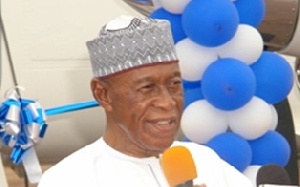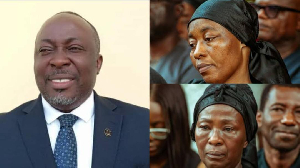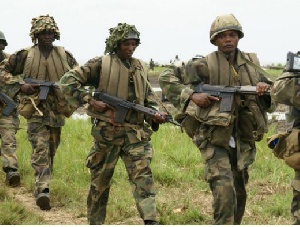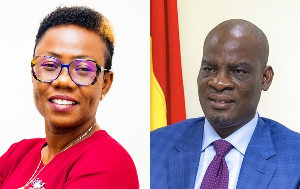Domestic airline operator Antrak Air will assume no insurance liabilities for its near-accident in Tamale last month.
The airline has a wet lease agreement with Swift Air, a Spanish airliner, for the use of the latter’s planes, which exonerates insurers of Antrak Air from paying claims on any damage to the aircraft.
The Founder & Chairman of Antrak Group, Alhaji Asuma Banda, explained to the B&FT during an interview in Accra that the agreement with Swift Air requires Antrak to take insurance responsibilities for its passengers while the Spanish company takes charge of insurance for the aircraft.
“The aircraft that I am using now, I don’t own them. I leased them. The only insurance I do is on passenger safety. That is what I have taken upon myself to do. The aircraft insurance is done by the person I am leasing from.
“So there is no insurance risk. The only insurance risk I have is toward the passengers because they mean so much to me,” he said.
In mid-August this year, one of the engines in an Antrak-operated flight from Tamale to Accra caught fire -- necessitating an emergency landing at the Tamale Airport with no injuries or deaths to both the crew and passengers.
Alhaji Asuma Banda said the incident, which is common in the aviation industry, has been exaggeratedly and sensationally reported in an attempt to down Antrak’s operations.
He said calls by some sections of the public and lawmakers to ground Antrak aircraft are misplaced and unwarranted as the airline uses one of the newest fleets for its operations.
He said the agreement with Swift Air has been written to safeguard and ensure the safety of passengers at all times; so that anytime a defect is detected on any of its aircraft, that aircraft is immediately replaced with another. This has ensured that the Airline has kept a zero accident and zero casualty record since it began operations in 2003.
“In-flight fire is a common thing in airline operation. Recently, Ethiopian Airlines bought a brand new aircraft, a 787, which caught fire at Heathrow Airport in London. Have they stopped flying?
“Ours happened and within a few days I replaced it with another aircraft. Are you not going to be proud that a Ghanaian is doing this rather than try to bring him down? After the incident, a Member of Parliament went from one radio studio to another calling for Antrak Air to be shut down. Has he bought a box before?
“I requested a meeting with the said MP and he has refused, so I don’t know why he is going around town calling for my business to be shut down. Maybe he applied for a job or favour in one of my businesses and didn’t get it, that’s why he is saying what he is saying. If he really means to stop my business, he should go to Parliament and draft a private member’s bill to close Antrak Air,” he said angrily.
Alhaji Asuma Banda said Antrak Air will soon have its own aircraft and take insurance cover for its fleet and passengers.
“I am now going for my own aircraft on a dry-lease agreement, which will require that I take insurance risk for both the aircraft and the passengers, and I have asked for the insurance quotations,” he said.
Antrak Air, which is currently the most flown domestic airline in the country, operates two four-year old ATR 72-500 aircraft on wet-lease from Swiftair, providing passengers with on-board comfort and services comparable to a jetliner.
It claimed the number-one spot in the country’s domestic aviation sector as the most-flown airline between September last year and March of this year. Figures released by the Ghana Airports Company Limited show that the airline claimed 39 percent of passengers in the industry within the period.
Antrak, in conjunction with Swiftair, has passed technical audits conducted by Hart Aviation on behalf of Newmont Ghana Gold Limited, as well as a similar audit undertaken by Litson and Associates on behalf of Goldfields Ghana Limited in an effort to be the carrier of choice for the extractive industries.
Business News of Wednesday, 4 September 2013
Source: B&FT













